Destination Hølen
In “a small hamlet called Hølen”, Truls Erik Johnsen has taken his fascination with frame building to the next level. This year he is, for the first time, taking orders from riders outside his closest circle of friends - and as with most things he does, including arranging a one-day cycling festival, his ambition is to make cycling fun.
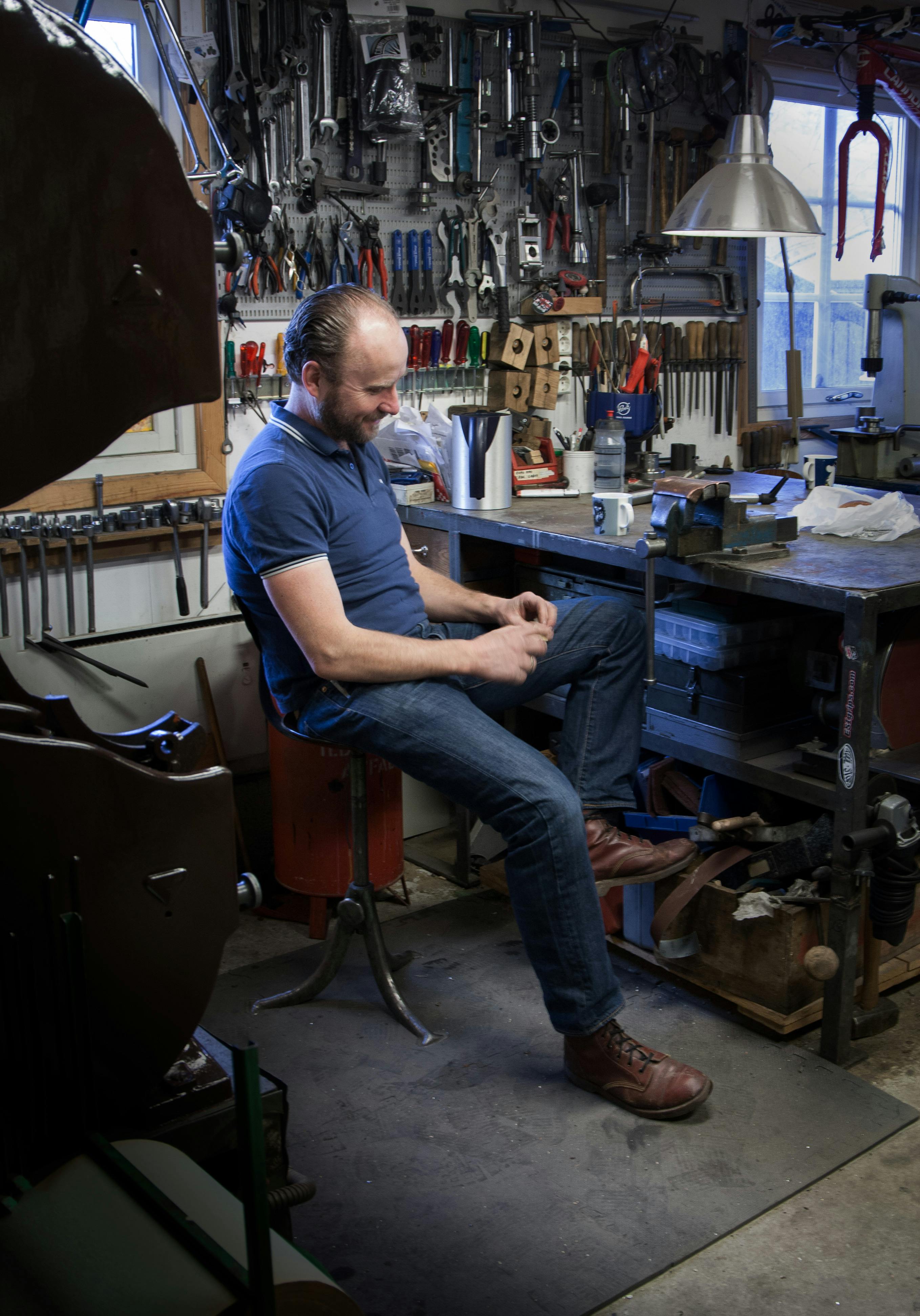
Text: Silje Strømmen
Photos: Mari Oshaug
In January, we receive an email with the subject “Welcome to Velofest Hølen 2017”. It read: “Hi guys, This is a quick heads up in preparation for Velofest Hølen 2017 taking place on the 9th of September.
As most of you know this will be the third time Elisabeth and I arrange this small get-together of enthusiasts from all fields of cycling in the small hamlet called Hølen in Norway. The first year (2015) we were app. 50 riders. Last year I think we ended up with more than 80 - and approximately 60 of these joined in for the party in our backyard in the evening. This year we’re planning for an even bigger crowd - but still with that relaxed and friendly atmosphere that we’ve managed to create in these first two events.
How can you not be intrigued by that introduction?
The concept of Velofest, Truls Erik Johnsen tells us a week later, is quite simple: Meet. Have coffee. Ride. Eat. Drink beer. Meet new friends. Drink more beer. In between there is music and the program is modelled after what the riders and invitees want to contribute with.
We are sitting in his workshop in the mentioned “small hamlet called Hølen” and Truls is explaining that if you don’t do things yourself, Hølen is not the kind of place where others will do it for you. Like arranging a bicycle festival, that wouldn’t happen unless Truls sends out the invitation.
“But it took me eight years before I decided to make something bicycle related here. A lot of people knew that I had this workshop and could do bicycle repairs, but after having arranged two editions of Velofest I feel a great support in that bicycling is fun, also from people who initially weren’t interested in bicycles”.
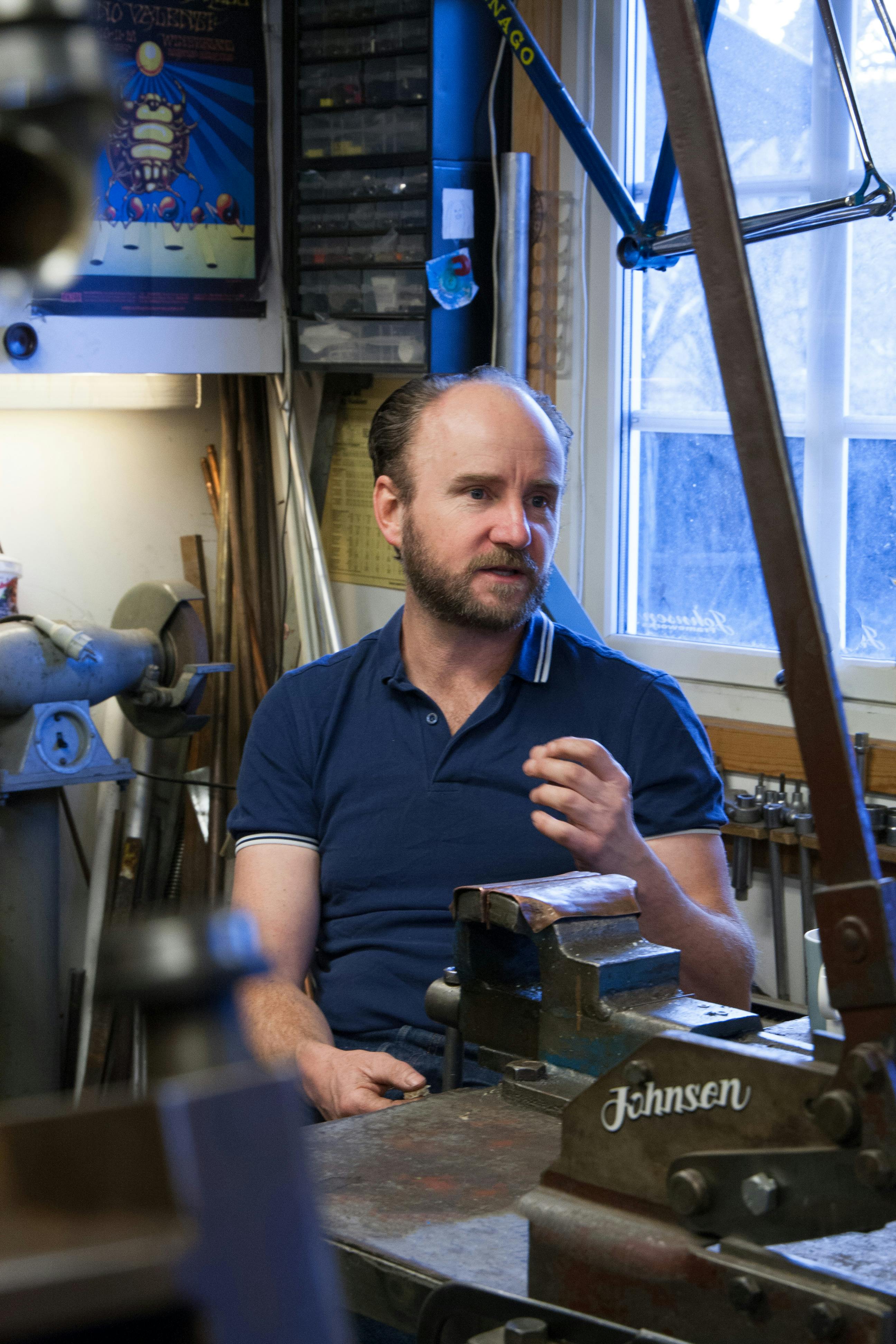
Prior to moving to Hølen, Truls lived in Oslo for 20 years. In those years he became a key figure in the city’s bicycle scene, among others as an original member of the bicycle club at the The University of Oslo and as one of the founders of the online magazine Terrengsykkel.
“My hope is that Hølen will become a cycling destination. This place has a number of facilities that I think are good in regards to cycling, and it is a fabulous location for road cycling. We see more and more riders stopping by for a coffee at the local café when they are out and about”, Truls says.
Hølen is the kind of place you imagine you have to have grown up in, or at least have some bond to (grandparents, other family, that kind of stuff), to even know it exists (it has less than 1000 residents). But neither Truls nor his wife Elisabeth had spent a lot of time in the area before deciding to move here 10 years ago.
“That was back in 2007 and we wanted to get out of the city and I wanted to be able to have my own workshop. So we ended up here”, Truls says.
The workshop and his brand “Johnsen Frameworks” soon became a reality. Ever since his interest for cycling was first sparked in the late 1980’s, frame building has been an obsession to Truls. In 1996 he visited several American frame builders, among them the legendary Gary Helfrich of Merlin Metalworks, Inc. That trip allowed him to build a valuable network of like-minded people, but after returning home to Oslo he continued his university degree and it wasn’t until he finished his education and started working that he was able to develop his obsession and get involved with a workspace.
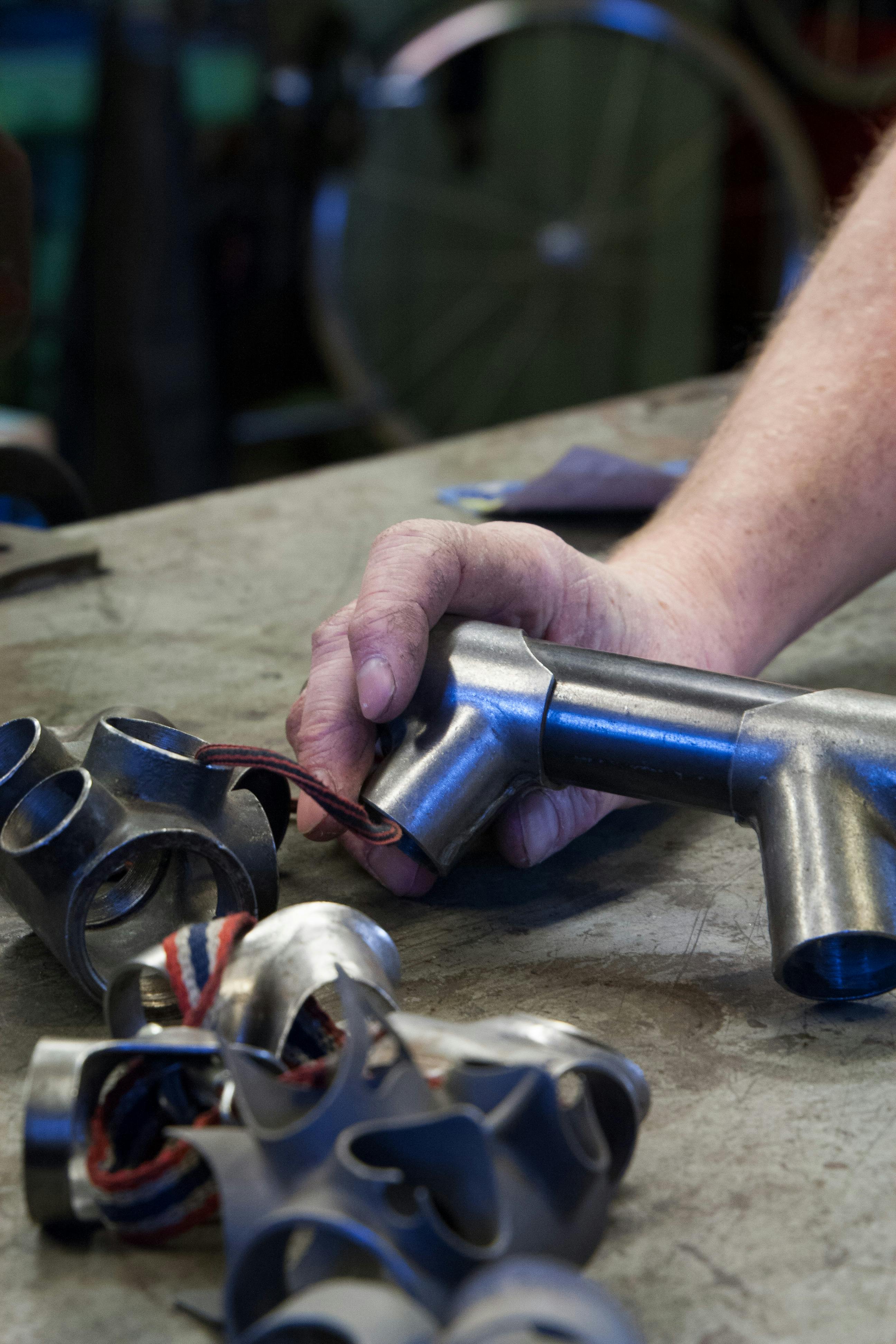
“After 10 years at the university it felt very liberating to be able to master a machine weighing a ton. Mastering words was something I knew very well at the time, but it was an incredible feeling to do something that I saw a tangible result of”.
After selling Terrengsykkel, he earned enough money to buy some of the machines needed for frame building and he got himself set up in a workshop in Rodeløkka in Oslo. He started building and finished his first frame in 2005. But it wasn’t until after moving to Hølen that the frame-building dream really got going. Several years later, it is still the feeling of creating something tangible that triggers him to spend evening after evening in the workshop, which is located in the back yard of his family home, only a few metres from the main house.
“My profession is ethnology and I work with getting people to communicate and with strategy and branding. That is pretty impalpable. Being in here every evening creates a balance between theory and practice”.
Because balancing what can only be described as a very time consuming and immersive hobby with a high profiled and demanding job can be tough.
“It has been crucial that my wife Elisabeth also have something she is passionate about. If not, it would have been hard for this to work as well as it has. After our two girls have gone to bed, I spend a few hours out here every evening and I spend most of my weekends here”.
The workshop is a small building located in the family’s back yard. The room is dominated by a series of robust machines, most of them in green, with origins that Truls talks about enthusiastically, as well as parts in all shapes and sizes, frames at different stages and memorabilia from almost 30 years of cycling interest (among them volumes of Dirt Rag and Mountain Bike from the early 90’s, as well as flyers from the cycling festivals he and his mates arranged back in university).
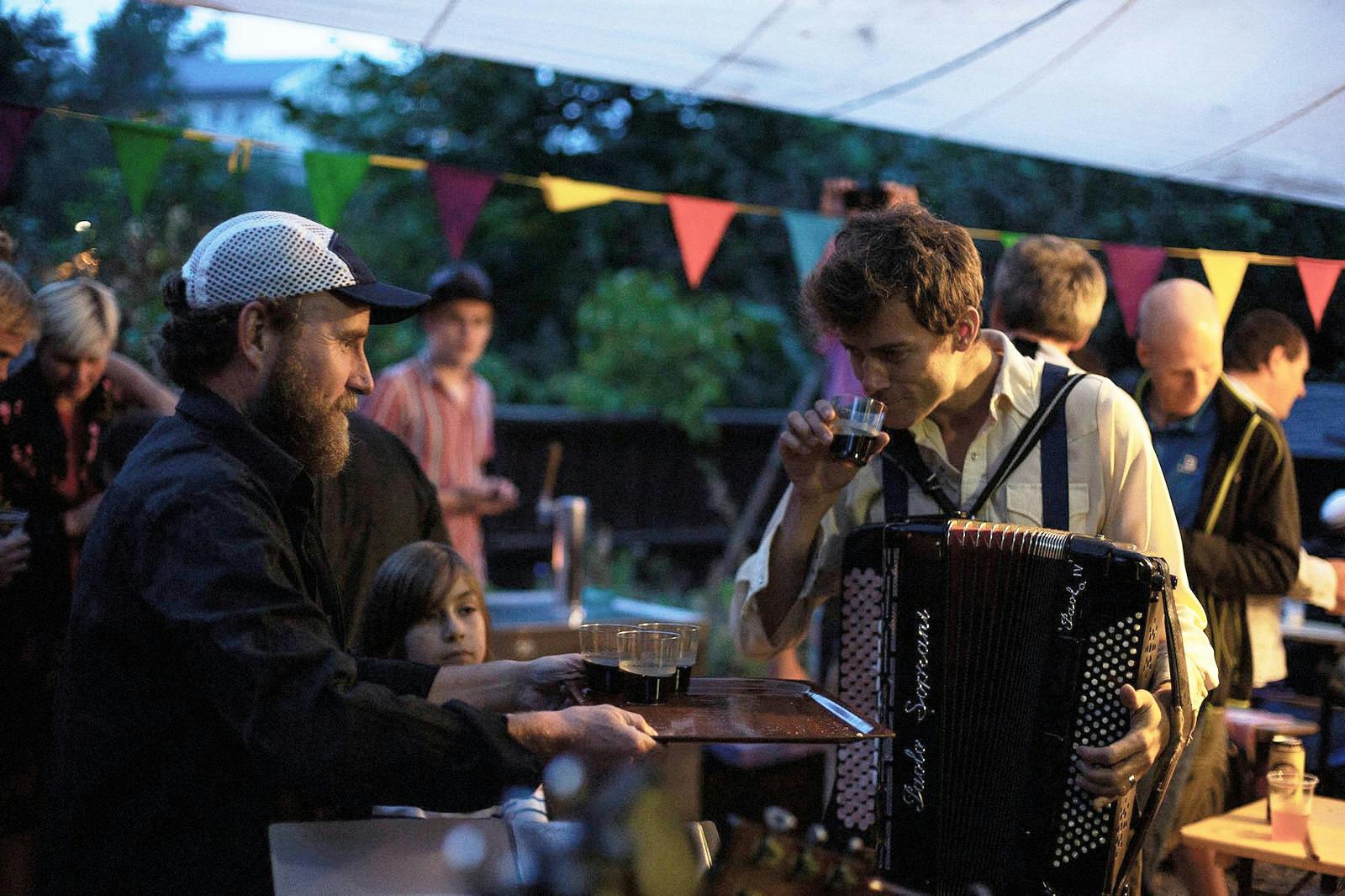
“It’s hard to say what my favorite part of the building process is, but I enjoy seeing the frame put together for the first time. There is something very satisfying about that point in the process when everything fits into place and to know that you are doing something that is creating a given result. There are no variations. That is partly why I have invested so much time in the machines here in the workshop. In principle you could do all of this by hand, but for me, standing here for 14 days with a hand file, it wouldn’t be satisfactory. I’m more production oriented and it’s not necessary for me to use more time than I need to. The most important thing is to get the job done. What you ultimately wish for is a good result for the person who is going to use the bike, not that you stand there and create some kind of philosophy about using time consuming methods. I don’t have unlimited time, and I never have. So it has to be done step by step”.
Much like the machines he uses to build, the bikes he makes are built to last. Through his brand Johnsen Frameworks, Truls offers lugged and luggless mountain bike and road frames. He is currently working on a collection of nine frames in different sizes and by eliminating the usual customer dialogue that comes with hand built frames he has freed up time to do just what he enjoys most: to build.
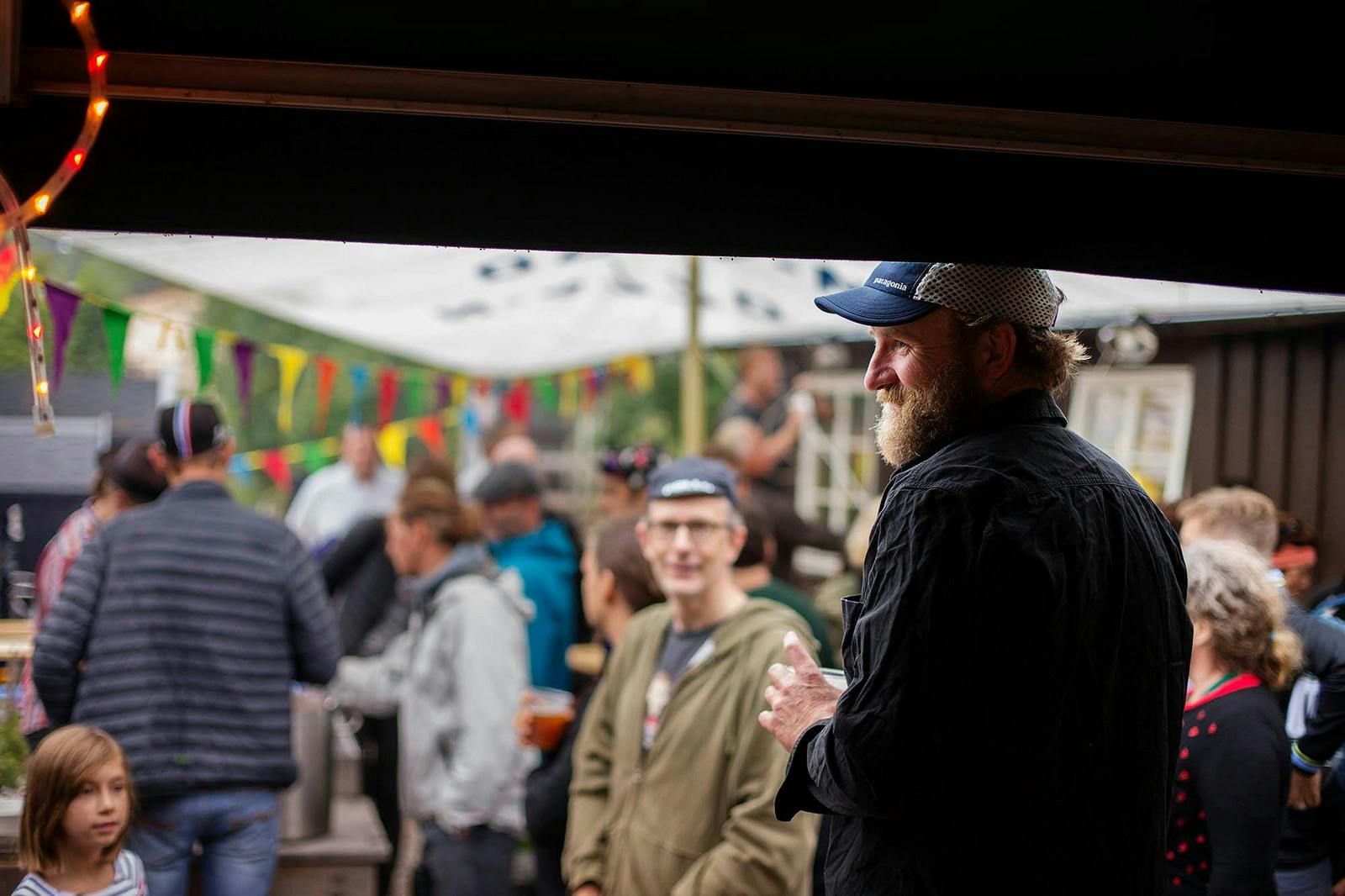
“When I first start the process, I think about what’s most important to me. The people who buy hand-built are people who want to have a good time on the bike – and having fun on the bike is something I know quite a lot about regardless of it being on a road- or a mountain bike”, Truls says, giving a nod to his days of “going to a punk concert and drinking beer Saturday night, and shredding out in ‘Marka’ on his mountain bike for six hours the day after”.
“My motivation is to build bikes that will be fun to ride for a long time. What I deliver are frames that will be fun to use, that you will want to use time and time again, that you feel you handle and that you will sit comfortably on. My builds will leave the rider with a good riding experience and a feeling of being one with the bike. I want to create good biking experiences. My designs require that you know how to bike, but in return I build light and flexible frames that will give the rider a lot of support, making it easier for he/she to be nicer to themselves”.
Until now Truls has mainly built for friends and family and his team riders. Now he is opening up the shop to everybody. First Norway, then the rest of the world follows.
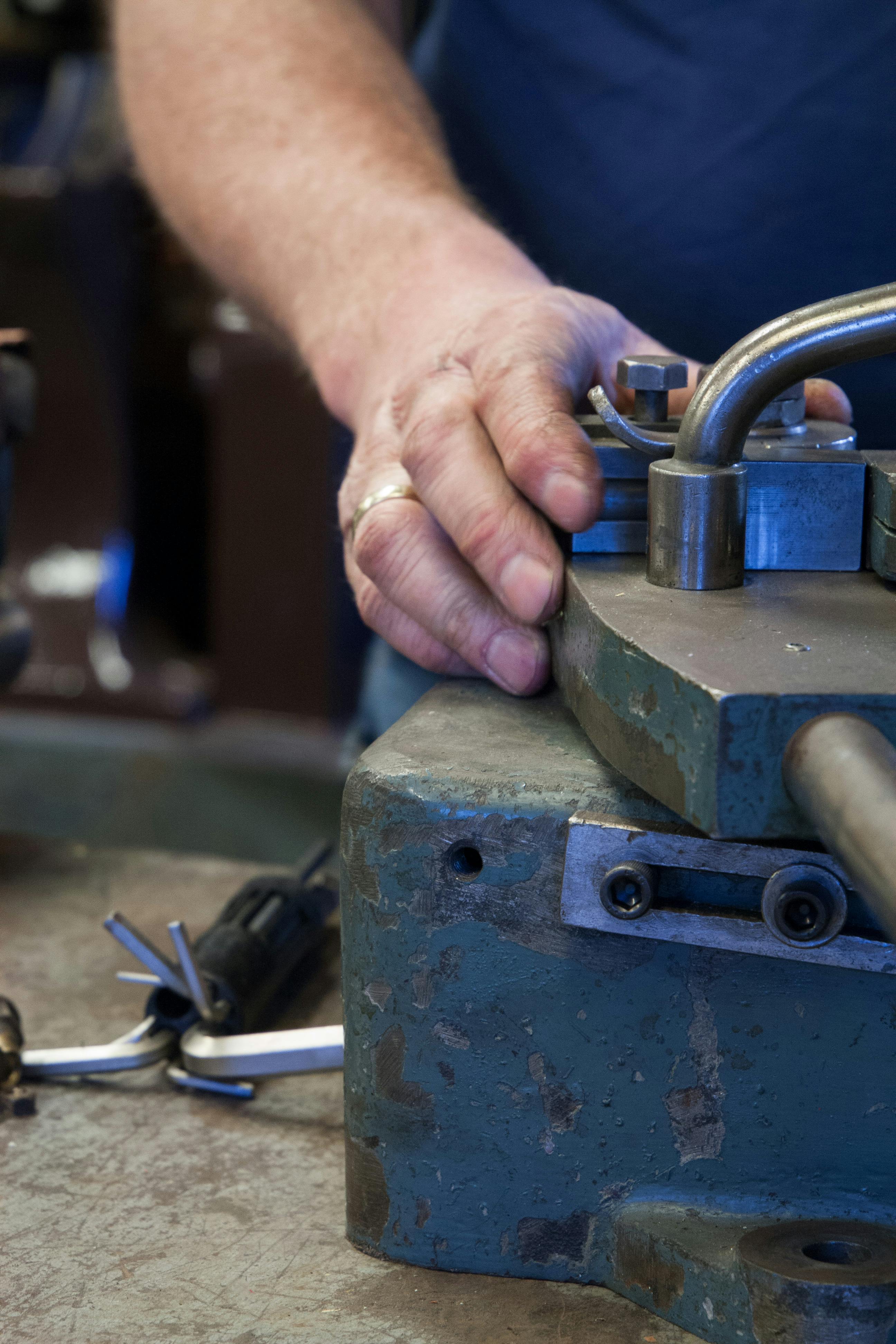
“To me personally it is a lot about me, my personality, my engagement and enthusiasm, and that is what needs to be communicated through my work. I need to do this my way. I think it is a great weakness that people don’t know where their stuff comes from and who’s behind it. I’m a fan of knowing that when I buy something, the profit goes directly to the person who has made it. Like the local shop here in Hølen (where, prior to starting the interview, we stopped by to get freshly baked buns), that is not a particularly lucrative project. But for us who live here it is crucial that we have a local shop like that. And if having that shop around means that we need to pay a bit more, that’s ok. I think and hope that is something other people as well find interesting. Potential customers are buying me – my passion – my history - and the bike is the outcome of that”.
Velofest takes place in Hølen, Norway every year in September. For more information on that, or Johnsen Frameworks, visit velofest.no and johnsenframeworks.com.